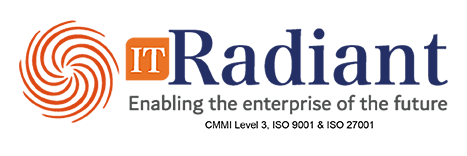Serialization in pharmaceutical manufacturing has become a game-changer in the quest for enhanced security, regulatory compliance, and supply chain efficiency. As global regulations tighten and the threat of counterfeit drugs grows, the need for effective serialization strategies is more critical than ever. This blog delves into how serialization is reshaping the pharmaceutical industry, exploring its technical intricacies, benefits, and the latest trends.
Key Technical Aspects and Benefits of Serialization in Pharma Manufacturing
Serialization in pharmaceutical manufacturing involves several technical components and benefits that are critical for enhancing security, ensuring compliance, and improving supply chain efficiency.
At the heart of serialization are unique identifiers assigned to each product, which often include a serial number, lot number, and expiration date. These identifiers are encoded into barcodes or 2D data matrix codes, which can be scanned at various points throughout the supply chain. This data is integrated into track and trace systems that monitor and verify the movement of products from production to end-users. These systems utilize databases and software platforms to enable real-time tracking and analysis of serialized data, ensuring accurate and efficient product monitoring.
Moreover, serialization practices must align with international and regional regulations, such as the U.S. Drug Supply Chain Security Act (DSCSA), the European Union’s Falsified Medicines Directive (FMD), and the global ISO 15459 standard. Compliance involves adhering to specific data formats, reporting protocols, and system capabilities, which are essential for meeting legal requirements and avoiding penalties.
The benefits of serialization are substantial. Primarily, it enhances security and helps prevent counterfeit drugs. By providing a unique identifier for each product, serialization allows stakeholders to verify the authenticity of medications at any stage in the supply chain, thus protecting patient safety and maintaining trust in pharmaceutical brands.
Additionally, serialization plays a crucial role in regulatory compliance, enabling pharmaceutical companies to meet evolving legal requirements and avoid costly penalties. It also improves supply chain efficiency by offering real-time visibility into product movement, helping to address issues such as inventory discrepancies, theft, and diversion. This transparency facilitates better inventory management and reduces the risk of stockouts and overstocking.
In the event of a product recall, serialization simplifies the process by allowing precise identification of affected batches or units. This targeted approach minimizes the scope of recalls, reduces disruption, and ensures only the necessary products are removed from the market.
Serialization is also evolving with new trends. Its global adoption is expanding as regulatory bodies worldwide implement serialization requirements, prompting companies to adopt global strategies for compliance. Technological advancements, such as integrating serialization with blockchain and artificial intelligence (AI), are driving innovation. Blockchain provides a tamper-proof method for recording and verifying serialization data, while AI enhances data analysis and predictive analytics for supply chain management.
Furthermore, serialization is enhancing consumer engagement. Companies are leveraging serialized data to provide patients with information about their medications through smartphone apps, allowing them to verify product authenticity and access educational content. While the initial costs of implementing serialization can be significant, the long-term benefits—such as reduced counterfeiting, improved supply chain efficiency, and enhanced regulatory adherence—often outweigh the investment.
Overall, serialization is a critical component in modern pharmaceutical manufacturing, offering essential benefits that extend from improved security to operational efficiency and regulatory compliance.
Summarily, serialization plays a pivotal role in modern pharmaceutical manufacturing, offering significant benefits in security, compliance, and supply chain efficiency. By providing a unique identifier for each product and integrating it into comprehensive track and trace systems, serialization helps safeguard patient health, streamline operations, and meet regulatory requirements.
As the pharmaceutical industry continues to evolve, embracing the latest serialization technologies and best practices will be essential for staying ahead in a competitive and highly regulated market.
For pharmaceutical companies looking to enhance their serialization strategies, staying informed about technological advancements and regulatory changes is crucial. Embracing serialization not only protects the integrity of the pharmaceutical supply chain but also contributes to the broader goal of ensuring patient safety and confidence in healthcare products.

